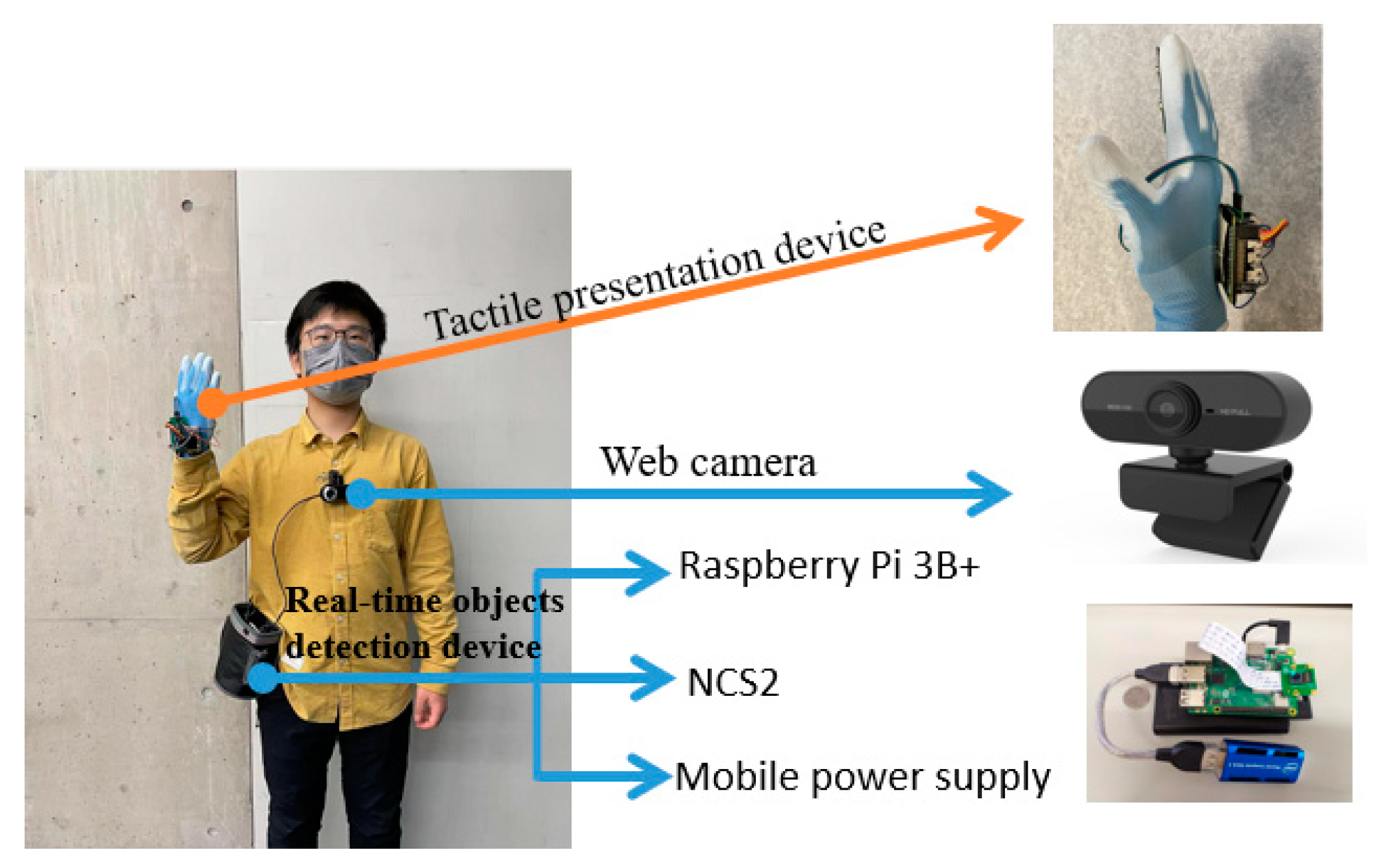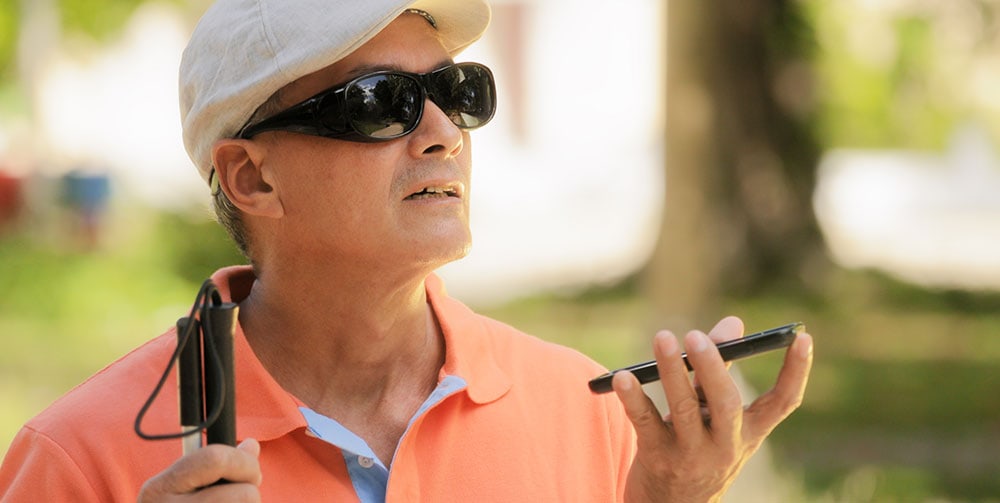Portable Technology for Low Vision: A Breakthrough in Accessibility
Portable Technology for Low Vision: A Breakthrough in Accessibility
Blog Article
Empowering Freedom With Assistive Technology for the Blind
The integration of assistive technology into the lives of people with visual impairments stands for a significant advancement in promoting self-reliance and self-sufficiency. From innovative screen viewers to advanced wise walking sticks, these devices not just enhance everyday navigation and interaction but also empower users to involve meaningfully in numerous facets of life. As we explore the myriad benefits and real-world applications of these modern technologies, it ends up being vital to check out the underlying factors that contribute to their performance and the possibility for future growths in this vital area.
Review of Assistive Innovation

The development of assistive modern technology is grounded in concepts of inclusivity and empowerment. Advancements in software, hardware, and sensory enhancements supply customers with alternatives tailored to their details requirements. From display readers that transform text to speech, to responsive tools that share information through touch, these devices change the means individuals engage with their surroundings.
Along with functional applications, assistive technology fosters higher social addition and involvement in various sectors, including education and learning and employment (Wearable technology for low vision). As r & d remain to develop, the potential for assistive technology to better enhance the lives of visually damaged people continues to be appealing, leading the way for an extra equitable society where everyone can flourish
Kinds Of Assistive Devices
A selection of assistive gadgets have arised to support people with aesthetic impairments, each designed to meet specific demands and improve daily performance. These tools vary from low-tech solutions to state-of-the-art innovations, offering diverse choices for users.
Low-tech gadgets include magnifiers and large-print materials that assist in analysis and writing. Braille tools, such as Braille stylus pens and slates, make it possible for tactile analysis and interaction. Alignment and wheelchair help, like white walking canes, aid individuals browse their setting safely.
On the higher end of the range, electronic magnification systems and screen viewers use considerable assistance. Electronic magnifiers enable customers to expand message and photos on screens, while display viewers transform digital web content right into manufactured speech, facilitating access to details on computer systems and mobile phones.
Smart device applications additionally play an essential function, providing attributes like text acknowledgment and navigating support. Wearable modern technology, such as smart glasses furnished with increased truth, is becoming an encouraging tool to boost situational recognition.
Benefits of Assistive Modern Technology
The assimilation of assistive modern technology considerably enhances the lifestyle for people with aesthetic problems. These innovations equip customers by advertising freedom, enabling them to browse their atmospheres better and carry out everyday jobs with better ease. Display visitors and magnification software program permit people to accessibility digital info, promoting instructional and professional possibilities that may have formerly been out of reach.
Moreover, assistive gadgets such as clever walking sticks and GPS applications supply real-time navigating assistance, improving flexibility and safety. This raised freedom not just improves self-worth but likewise motivates social interaction, allowing customers to participate even more completely in their communities.
Assistive technology likewise assists in communication, aiding users connect with others via voice men's designer glasses frames recognition and text-to-speech applications. This capacity is essential for preserving partnerships and accessing essential details.
Furthermore, the modification choices available with many assistive innovations ensure that individuals can tailor tools to their specific requirements, better enhancing functionality and efficiency. On the whole, the benefits of assistive innovation for people with visual impairments are extensive, advertising a more inclusive culture where every person can pursue their aspirations and goals.
Situation Studies and Success Stories
Highlighting the transformative effect of assistive technology, numerous instance researches show how people with aesthetic impairments have efficiently integrated these tools into their lives. One engaging instance includes a college student that made use of screen analysis software to browse academic products and online sources successfully. This technology not only facilitated her education and learning yet also boosted her self-confidence in joining conversations and team projects.
An additional study includes a professional that uses a smart device application developed for navigating and object acknowledgment. By using this app, he has actually regained autonomy in both his personal and job atmospheres, allowing him to commute independently and engage with colleagues better.
Furthermore, a retired person shared her experience with braille e-readers, which enabled her to access a vast variety of literature and remain gotten in touch with her community with book clubs.
These success stories underscore the important role of assistive innovation in promoting independence, enhancing lifestyle, and advertising social integration for individuals with aesthetic disabilities (Assistive technology for the blind). By accepting these cutting-edge devices, individuals can get rid of obstacles and seize possibilities that add to their personal click this link and specialist gratification

Future Trends in Assistive Technology
Development in assistive innovation is poised to redefine the landscape of assistance for individuals with aesthetic disabilities. Emerging fads stress the integration of expert system (AI) and device understanding, which improve the functionality of devices that aid with navigation and details availability. For example, AI-driven applications are now efficient in translating aesthetic data in real-time, allowing customers to involve with their setting much more separately.
Additionally, the growth of wearable modern technology is progressing swiftly. Smart glasses geared up with augmented fact (AR) can give audio descriptions of surroundings, transforming exactly how individuals connect with public spaces. These devices not only promote autonomy however likewise foster social inclusion.
Additionally, the Recommended Reading Web of Things (IoT) is making homes smarter, enabling smooth connection in between day-to-day devices and assistive gadgets. This connectivity empowers individuals by enabling voice-activated controls and computerized feedbacks tailored to specific requirements.
Final Thought
Finally, assistive innovation plays a critical role in encouraging people with visual impairments by improving their self-reliance and engagement with their surroundings. The varied range of devices and applications offered not only assists in navigating and communication but additionally advertises social combination and opportunities for individual and expert growth. As developments proceed in this area, the potential for boosting the lifestyle for those with visual impairments will broaden, fostering greater freedom and empowerment.

Report this page